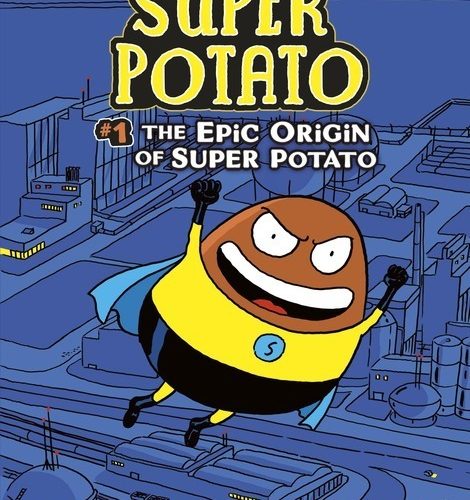Flying Your Way this August: The Epic Origin of Super Potato

 By Greg Hunter, Associate Editorial Director, Graphic Universe
By Greg Hunter, Associate Editorial Director, Graphic Universe
The history of superhero comics is full of stories that tease—or even appear to implement—drastic changes to a character’s status quo. The goofiest versions of these stories took place during the 1950s and 1960s. During those times, comic book heroes would routinely transform into turtles or werewolves. They’d turn purple or split in two. Their friends and loved ones would react with alarm. The heroes themselves would wonder if their careers as crime fighters were finished. And the problem would find a hasty resolution by the end of an issue.
Nowadays superhero stories continue to feign a new normal for their characters. A classic villain assumes the name and costume of a classic hero. Or a hero’s longtime protégé takes up the role instead. An engagement or a wedding is staged, then undone. Unlike the single-issue larks of the ’50s and ’60s, these story arcs often take place over months or years, but the end result tends to be the same: an eventual shift back to the status quo.
It Doesn’t Always Work That Way

And then there’s Artur LaPerla’s Super Potato series. In The Epic Origin of Super Potato, Super Max, a hero known—even among his fellow crime fighters—for exceptional muscles and great head of hair, stumbles into a life-changing trap. Arch villain Doctor Malevolent manages to blast him with a device that turns the handsome Super Max into a tiny tuber. So begins a series that explores what happens when a change sticks.
Epic Origin is available August 1, 2018. After this hilarious entrée into potatodom, future stories of Super Potato will take him to outer space, send him back in time, and put him face to face with a gigantic chicken. And they’ll show readers that even a potato can be a hero.
Comments